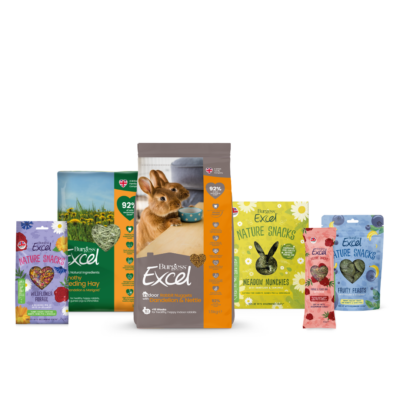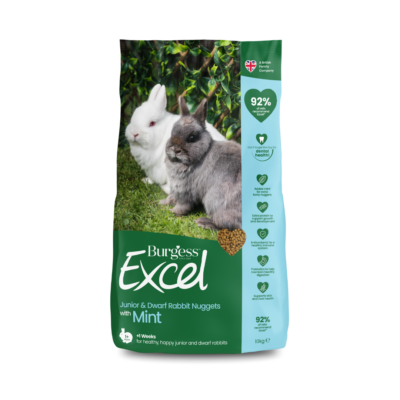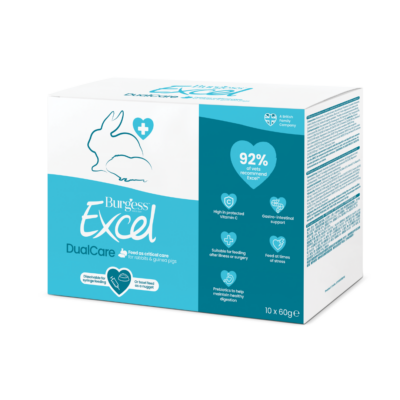When it comes to choosing the best food for dwarf rabbits, junior rabbit food or baby rabbit food, what are the important things to look for?
The ideal rabbit junior food and dwarf rabbit food diet should consist of high fibre foods to keep their gut healthy, and fibrous grasses to help prevent their teeth from overgrowing. Look for a rabbit food that’s high in fibre, made with a carefully formulated balance of nutrients and no artificial colours or flavours.
As with all rabbits, fresh, high quality rabbit feeding hay is also essential, along with some yummy, healthy rabbit treats to add enrichment to your buns’ day!
At Burgess, all our food for rabbits is made at our own factory in the heart of Yorkshire, using only ingredients that meet our stringent specifications. We believe it’s the best food for young rabbits, junior rabbits and dwarf rabbits and that your buns will love it!
Junior & Dwarf Rabbit Food FAQs
Got a question about choosing junior rabbit pellets, dwarf rabbit pellets or how to select the best rabbit food for young rabbits?
To help you learn more about feeding a healthy rabbit diet to your buns, we’ve put together some really useful answers from our nutrition team at Burgess, the pet care experts.
Need more advice?
If you’re at all unsure about the best food for your young rabbits or have any concerns about specific nutritional requirements, ask your local veterinary practice for advice.
Our expert team are also available 9am-5pm, Monday to Friday, on +44 (0)1405 862241, and we’ll be happy to help with your query. Alternatively, use our online contact form to get in touch.
Are your bunnies Burgess bunnies? Join the Burgess Pet Club for exclusive offers and rewards.

















